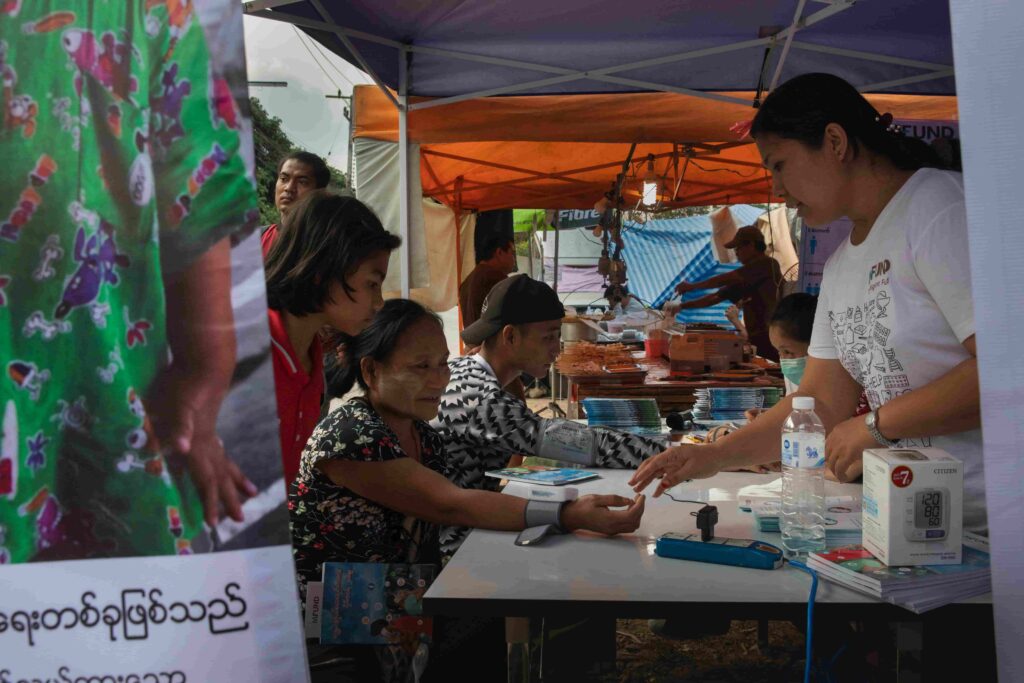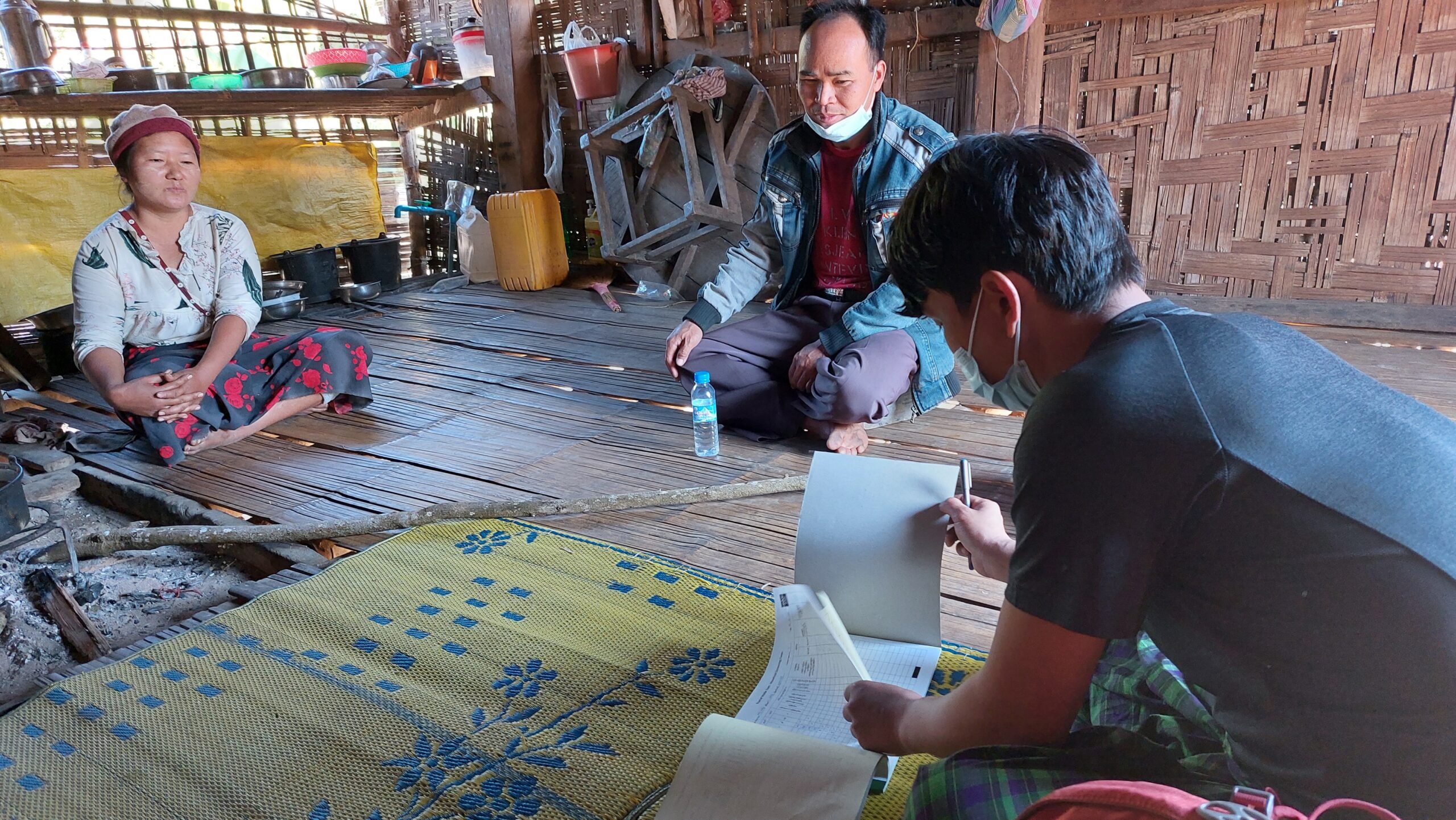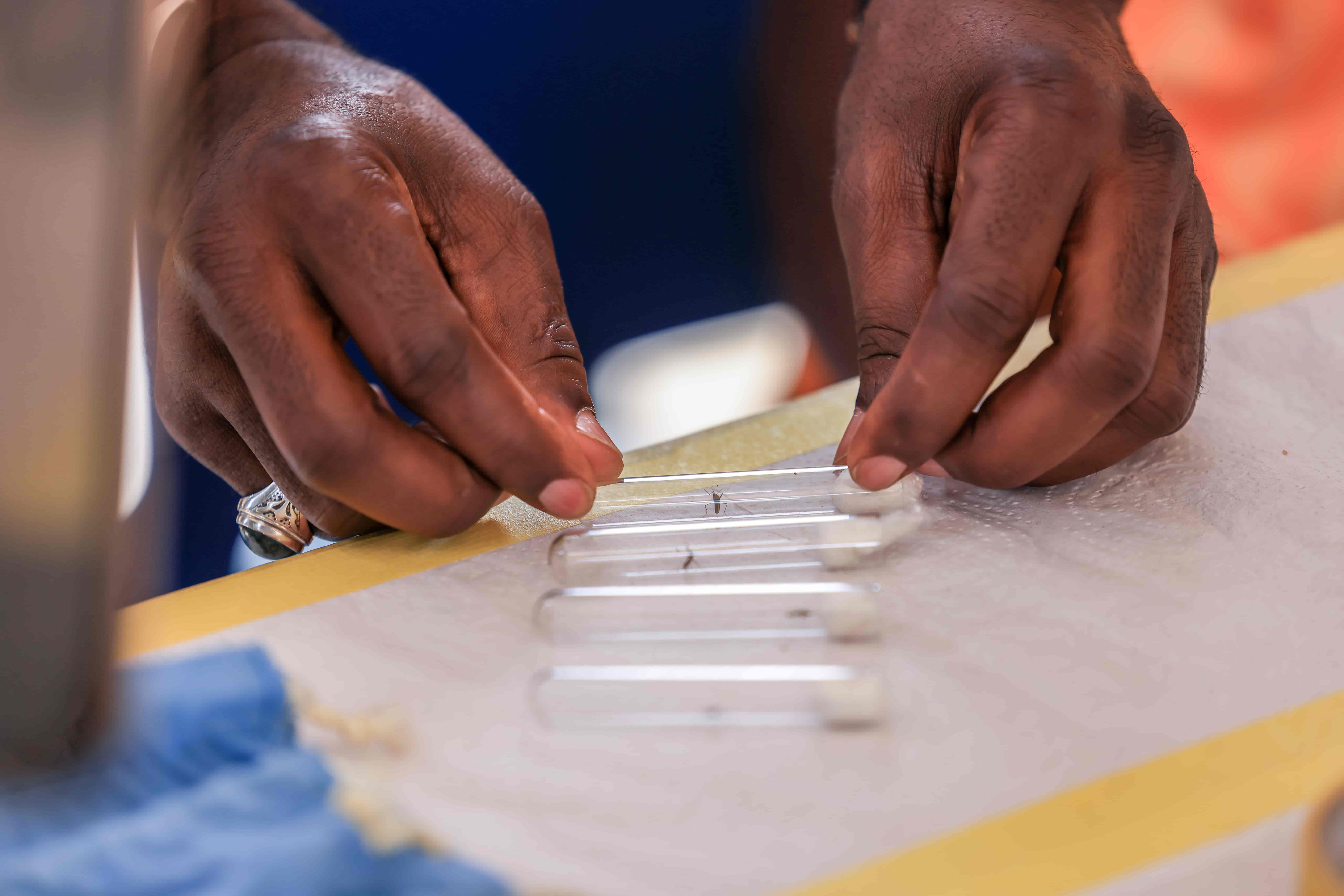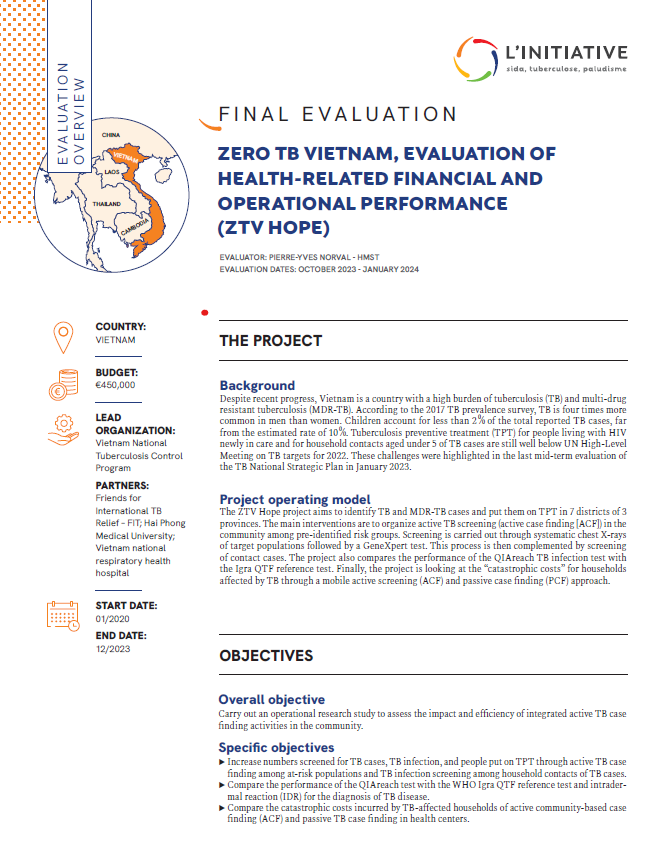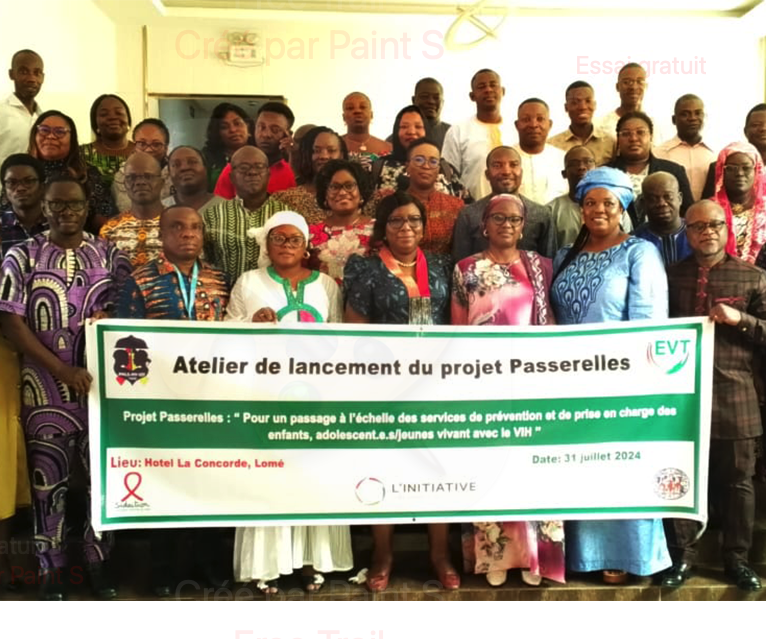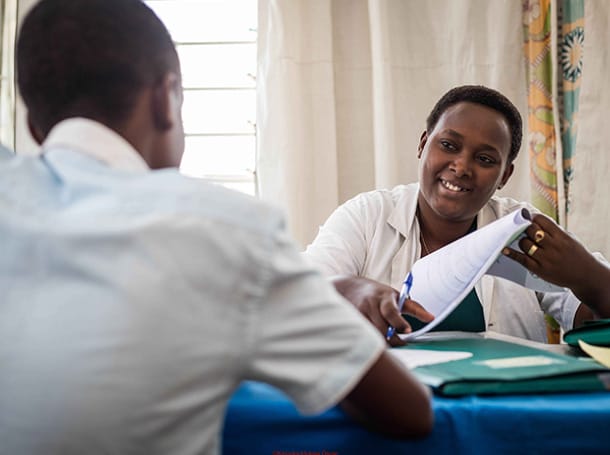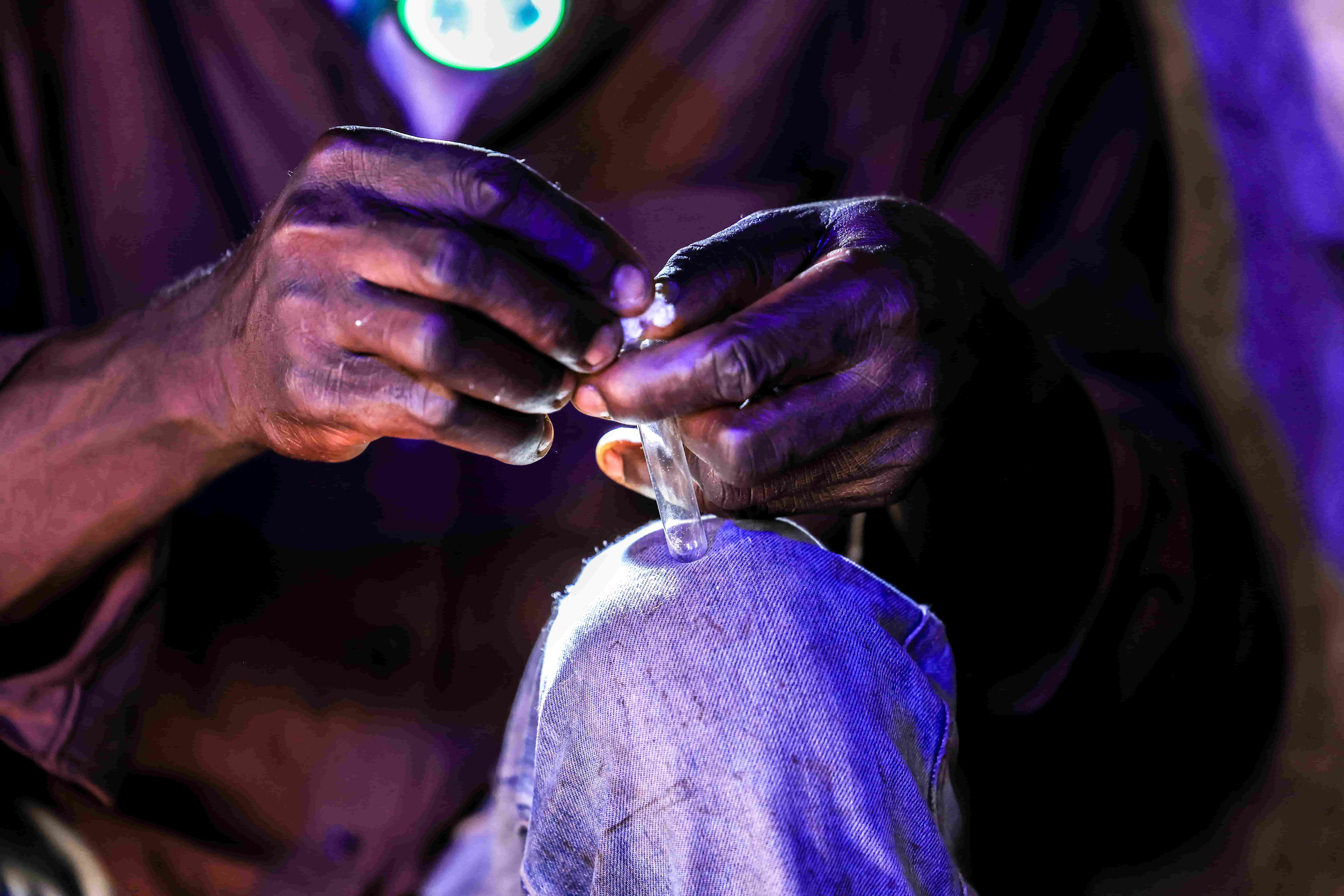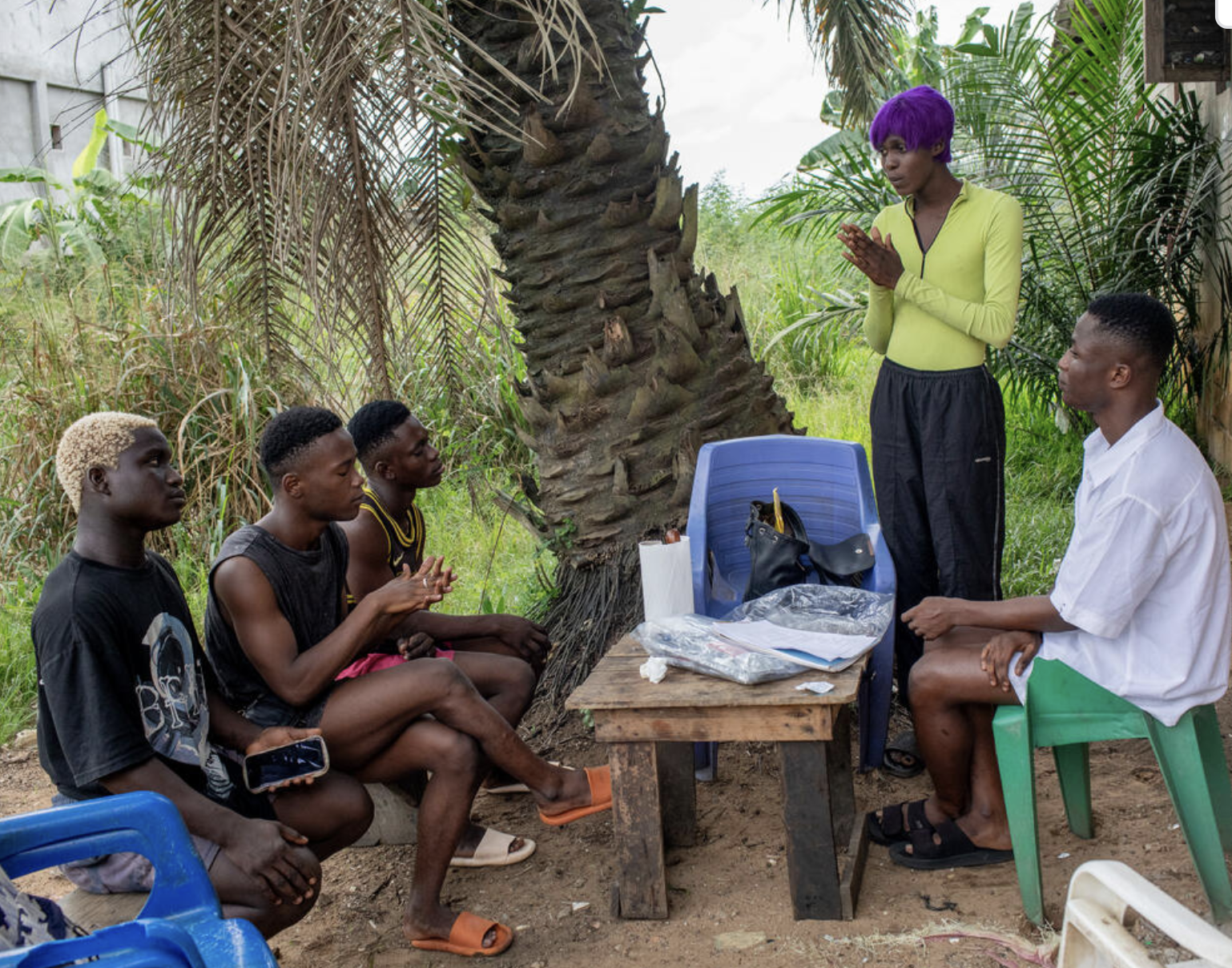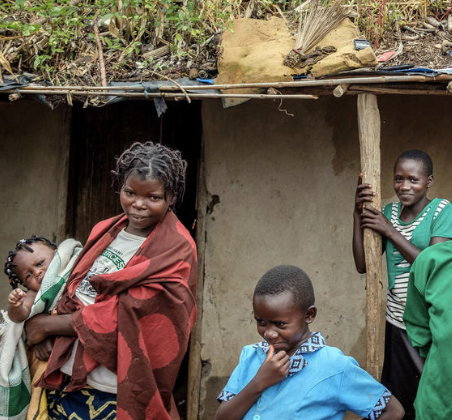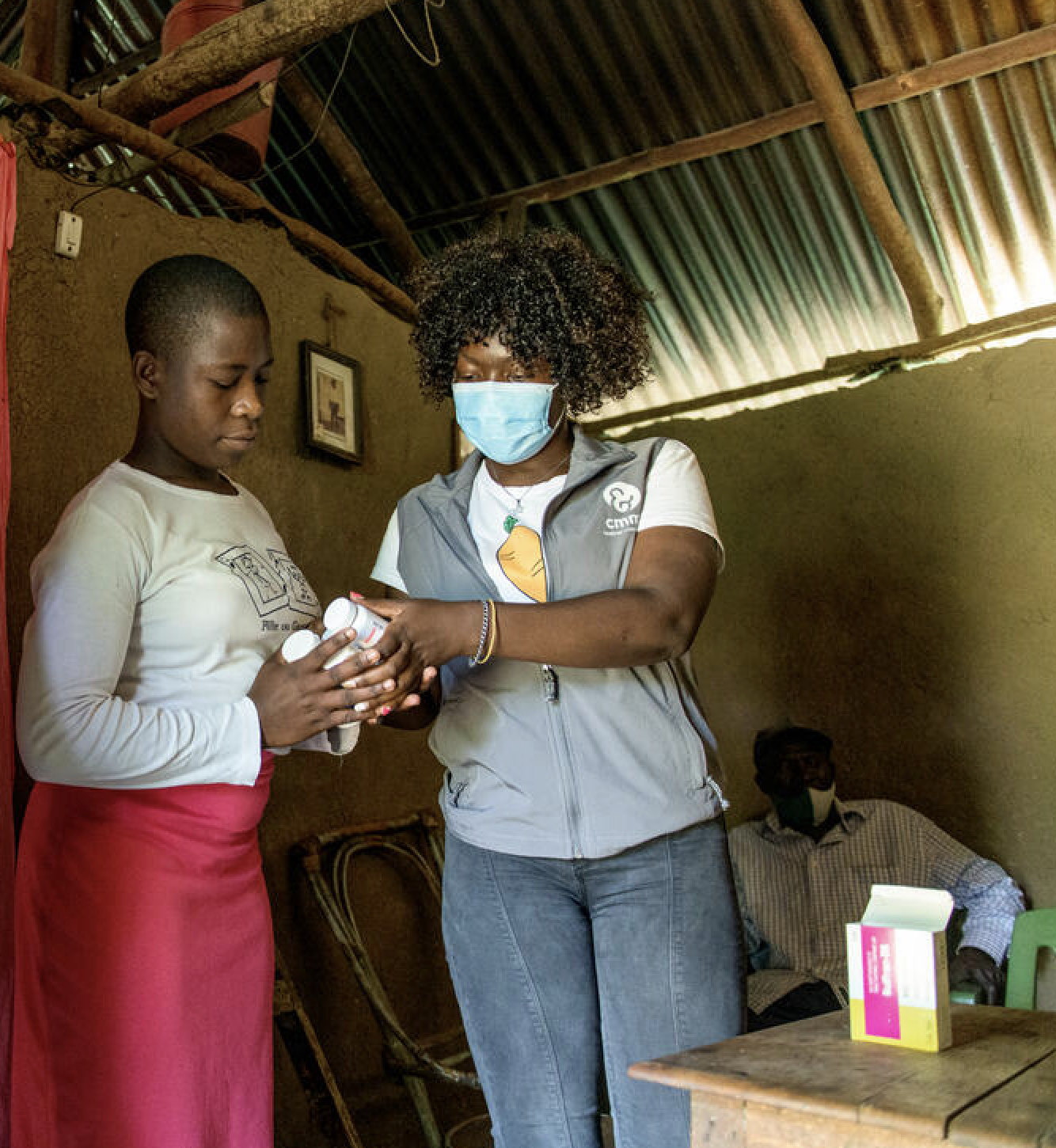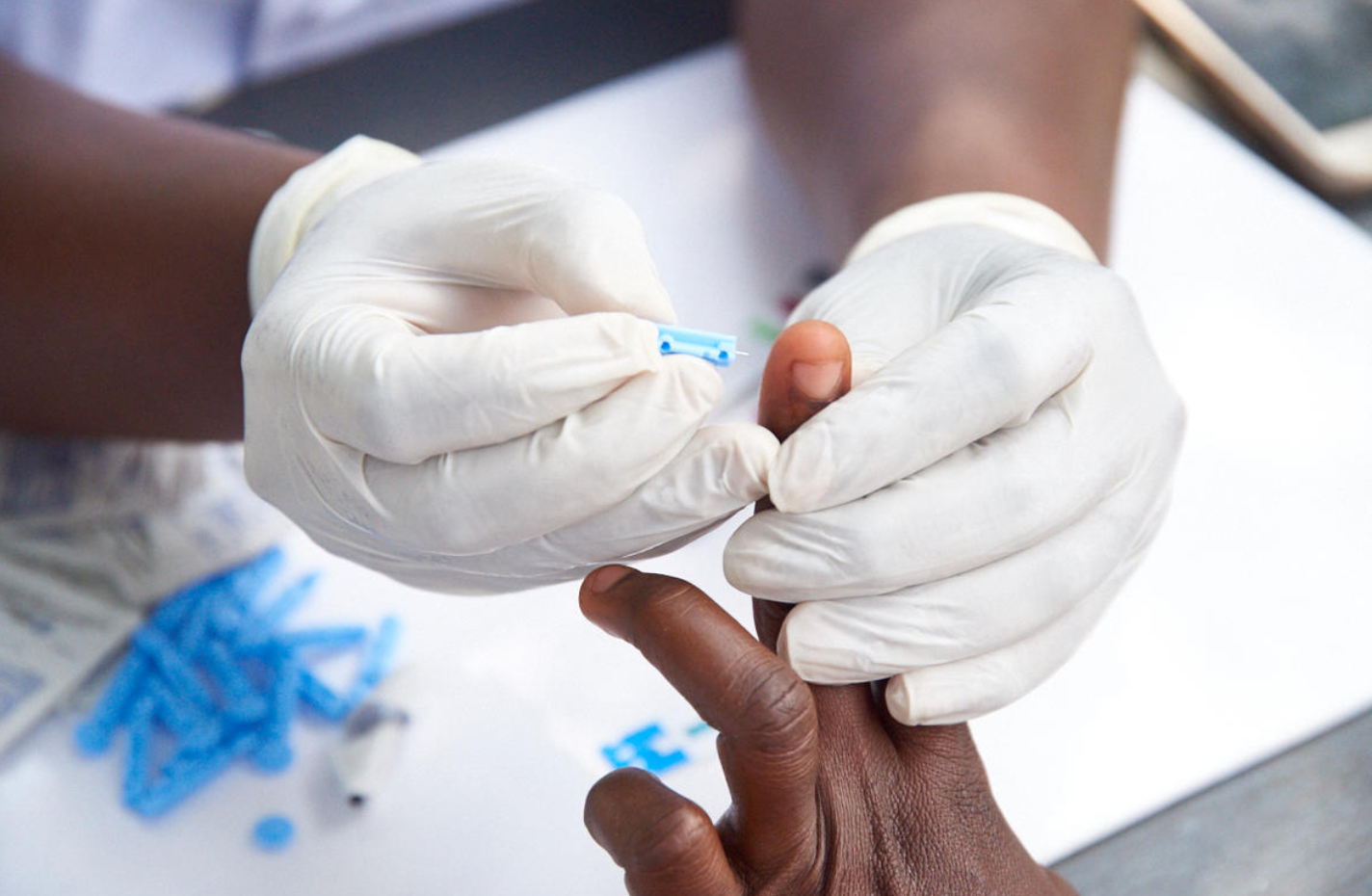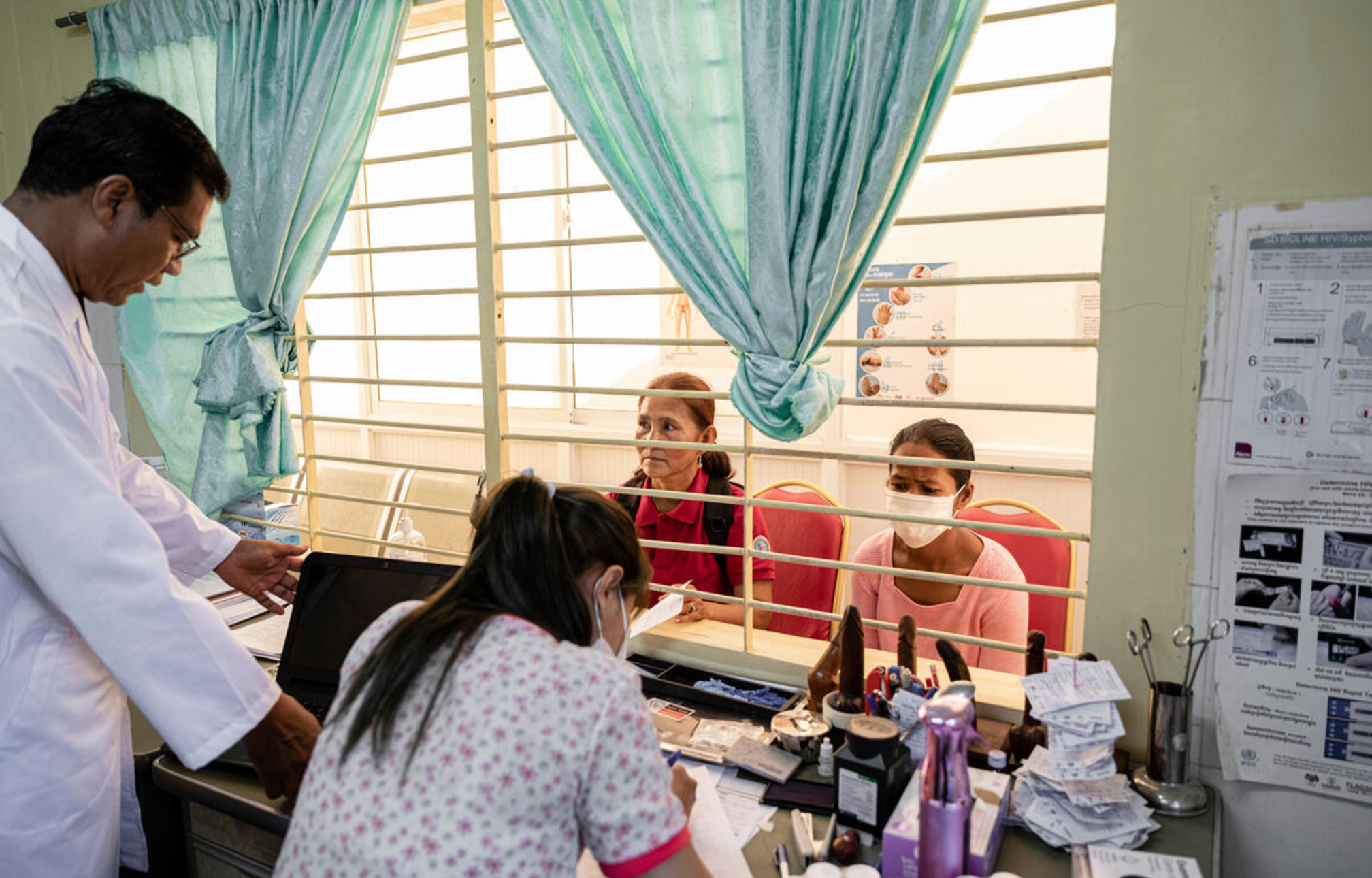For over a decade, L’Initiative has been combating HIV/AIDS, tuberculosis, and malaria in the Greater Mekong region. This area, home to nearly 250 million people, includes Cambodia, Laos, Myanmar, Thailand, and Vietnam – countries with diverse histories and modern realities that face significant public health challenges.
In partnership with the Global Fund, L’Initiative is committed to the Greater Mekong sub-region to fight the pandemics of HIV/AIDS, tuberculosis, and malaria. With an investment of over 50 million euros over ten years, 37 projects have been funded, addressing not only these three diseases but also strengthening health systems. These projects, implemented by national programs, civil society organizations, universities, and research institutions, have led to significant progress. L’Initiative’s commitment has resulted in reduced incidence and mortality rates, increased access to therapies, and strengthened existing infrastructure and human resources, notably through the training of community health workers. Despite these advances, challenges persist, including combating drug-resistant malaria strains and addressing stigma. In this interview, Dr. Patrice Piola, an epidemiologist, discusses the health challenges in the Greater Mekong region, which is currently facing a “double burden” of public health issues that combine diseases of both developed and developing countries.
- 37
projects funded
in the Greater Mekong sub-region - +50M€
million euros
invested in fighting pandemics- 450
community health workers
trained to strengthen health systems The Need for Regional Collaboration to Effectively Combat Diseases
Drug resistance to antimalarial treatments is a major obstacle to eradicating malaria in the Greater Mekong region. Established in 2014 and supported by L’Initiative, the Regional Artemisinin-resistance Initiative (RAI) works closely with governments and local communities to develop integrated strategies aimed at quickly detecting and treating malaria cases, reducing transmission rates, and preventing the spread of resistant strains. However, challenges remain, such as difficult access to remote populations, coordination between different national systems, and the need for sustainable funding. In this interview, Professor François Nosten, director of the Shoklo Malaria Research Unit (SMRU) in Thailand, discusses the epidemiological situation in the Greater Mekong region and the latest advances in the fight against antimalarial drug resistance.
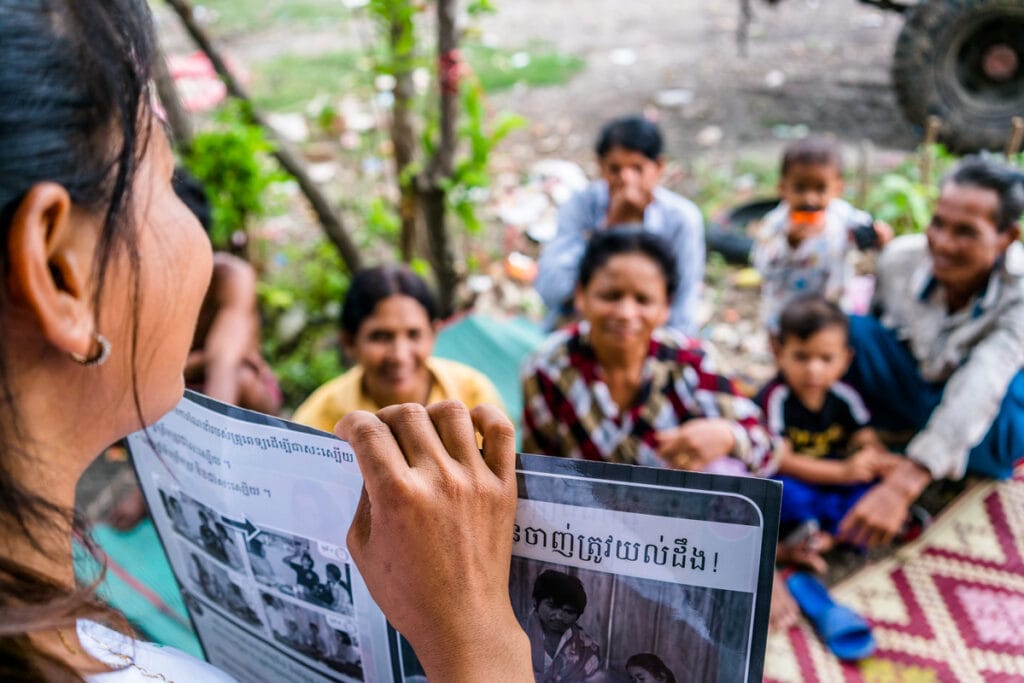
Project REGENERATE: Promoting Equality and Health in Asia-Pacific
Launched on June 12 and supported by Expertise France through L’Initiative, the REGENERATE project aims to develop inclusive policies to fight the three pandemics in Asia-Pacific. Led by the APCASO network and implemented by several civil society organizations, this project addresses the needs of women, girls, and people of all sexual orientations to promote gender equality and sexual and reproductive health rights (SRHR). Spanning 36 months and funded at 1.8 million euros, REGENERATE is being implemented in Cambodia, Thailand, and Vietnam, in partnership with the Cambodian NGO KHANA, the Thai foundation SWING, and the Vietnamese NGO SCDI.
The APCASO network, active for 30 years, brings together organizations from 12 countries working for social justice and gender equality, and strengthening community systems. RD Marte, Executive Director of APCASO, discusses in this interview the objectives of strengthening community systems and L’Initiative’s support.
Innovations for Targeting, Screening, and Treating
L’Initiative continues to innovate to address health challenges in Southeast Asia, supporting operational research projects and developing new strategies to combat HIV and tuberculosis. These initiatives aim to improve the prevention and detection of these diseases, particularly targeting marginalized and discriminated populations such as drug users and sex workers, who are often neglected by health systems. Epidemiologist Gonzague Jourdain explains in this interview how the NAPNEUNG-2 project in Thailand has enabled the distribution of PrEP and the use of IT technologies to facilitate HIV screening, thus improving the care of key populations.
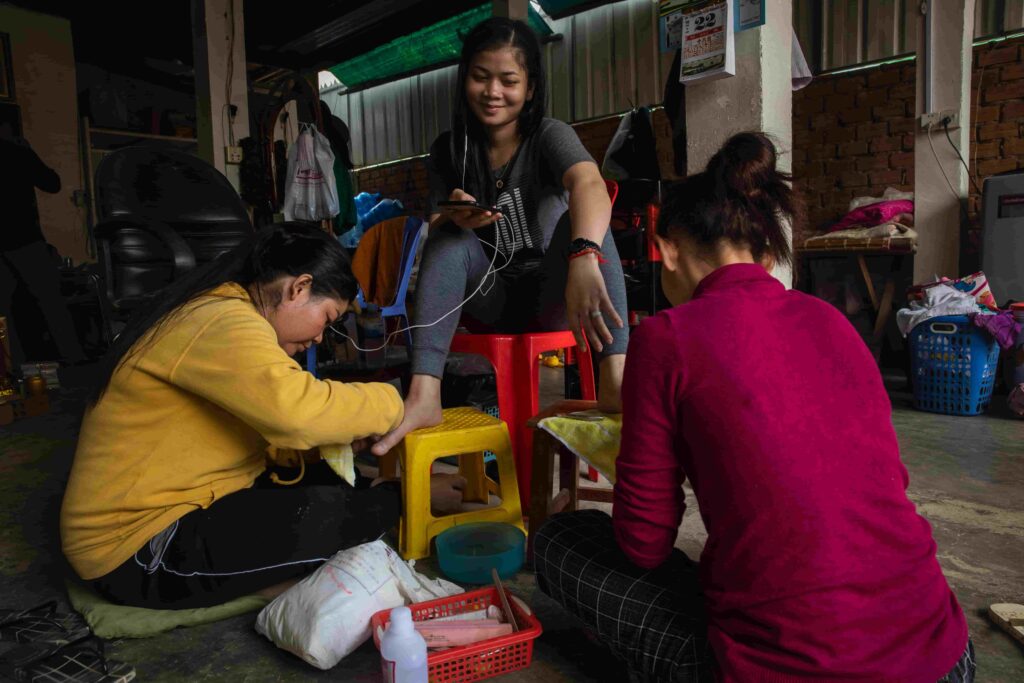
New Strategies to Detect and Treat Latent Tuberculosis
Latent tuberculosis (LTBI) is an asymptomatic infection affecting up to one-third of the world’s population, representing a major public health challenge. L’Initiative supports innovative projects to detect and treat LTBI, including the Capthaï project in Thailand, targeting contacts of tuberculosis patients, and the Opticam project in Cambodia, improving LTBI management among people living with HIV. These initiatives aim to reduce morbidity and mortality related to tuberculosis.
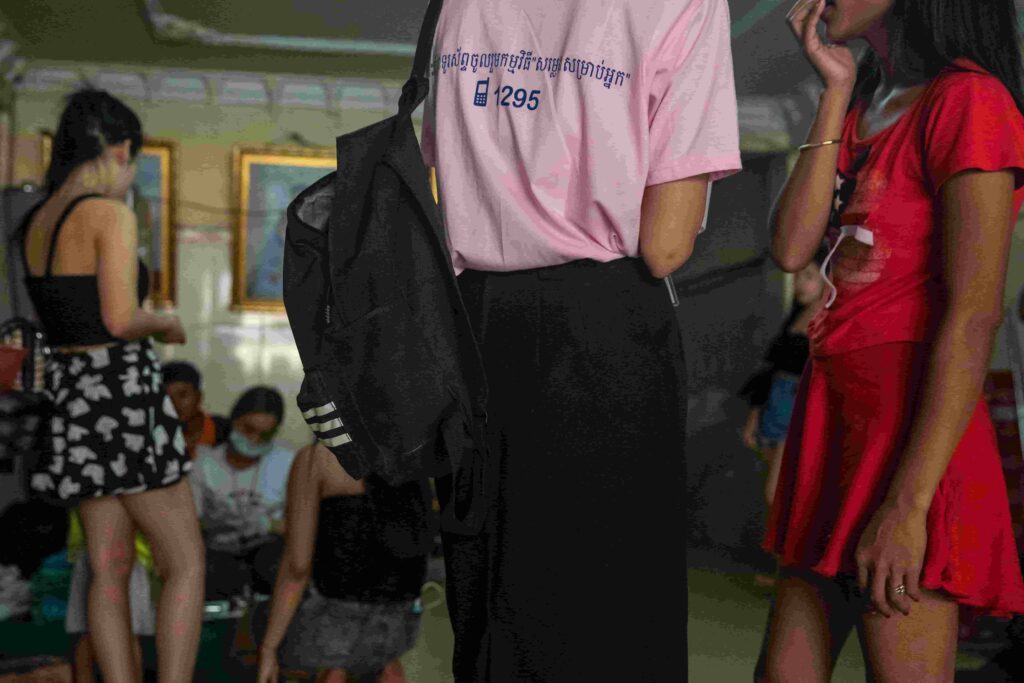
Supporting Operational Research to Innovate Against TB and HIV
Supported by L’Initiative, the Center for Supporting Community Development Initiatives (SCDI) improves the quality of life of most vulnerable populations in Vietnam, including drug users affected by HIV and tuberculosis. Following the success of a similar HIV project, the Drive-TB project, launched in 2023, uses a community-based approach and innovative research strategies to screen and treat tuberculosis on a large scale among injecting drug users in Haiphong.
Mobile Link: Promoting Healthcare Access for Sex Workers in Cambodia
In Cambodia, there are over 40,000 female sex workers, including 24,000 in Phnom Penh. In 2009, a study showed that about 9% of this population was infected with HIV, and nearly 82% of these women had already been tested for HIV. To address these challenges, the NGO KHANA launched the Mobile Link project (2017-2020). This project aims to share educational information about HIV with Cambodian sex workers and direct them to health centers through regular SMS or voice message exchanges. Beyond HIV, Mobile Link addresses other health issues, such as cervical cancer prevention, drug use, and forced alcohol consumption. Initially targeting a sample of 600 sex workers, the project has reached a marginalized population, offering vital resources and access to healthcare while respecting their confidentiality and dignity.

Communities on the Front Line against Malaria and HIV
Community-based approaches are essential for combating diseases in Southeast Asia. In Cambodia, despite a significant reduction in malaria morbidity and mortality, its elimination remains challenging due to mosquitoes present in forest areas. The Pasteur Institute of Cambodia and its partners are working to eliminate the parasite reservoir with community interventions. In Laos, the NGO CHIAs works to eliminate malaria by strengthening local communities and training community health workers to quickly diagnose and treat cases. These projects demonstrate the effectiveness of community engagement and health worker training in improving public health in remote regions, targeting vulnerable populations, and integrating aspects of prevention, treatment, and social support.
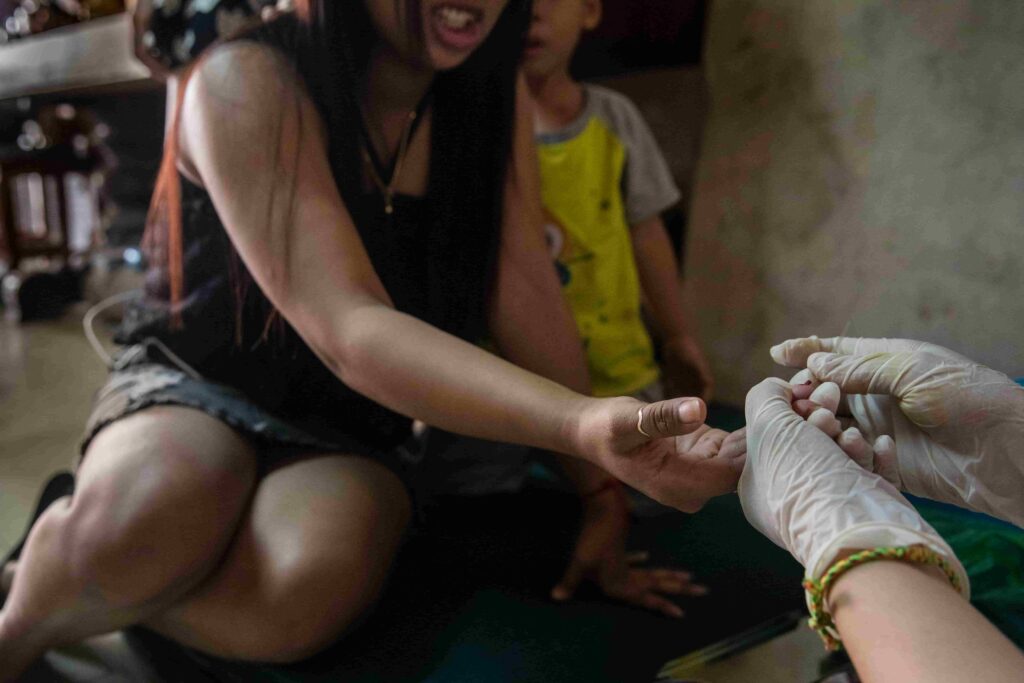
Providing Antiretroviral Therapies via Communities in Cambodia
With support from L’Initiative, the NGO KHANA successfully experimented with a community-based system for distributing antiretroviral (ARV) treatments. This project, which took place between 2020 and 2023, aimed to develop and evaluate a community-based ARV distribution model in 10 HIV care centers. The results show a reduction in clinic staff workload and increased service efficiency. People living with HIV (PLHIV) reported high satisfaction, better treatment adherence, and savings in time and money. Additionally, the number of lost-to-follow-up PLHIV decreased. Currently, 70 communes fund this model in their annual budget, ensuring the continuity of the initiative after the project’s end. In this interview, Chamreun Choub Sok, Executive Director of KHANA, highlights the lessons learned from this community approach, demonstrating the effectiveness of local mobilization in the fight against HIV/AIDS.
Human Resources, the Keystone of Health and Community Systems
Strengthening human resources for health is essential for resilient and sustainable health systems. The Greater Mekong region is particularly vulnerable to endemic diseases such as malaria and tuberculosis. Improving the skills and increasing the number of health professionals is crucial to ensure equitable access to quality care and an effective response to health crises. Among these health professionals, community health workers play a key role in filling gaps in rural areas, where they provide prevention, diagnosis, and treatment of diseases.
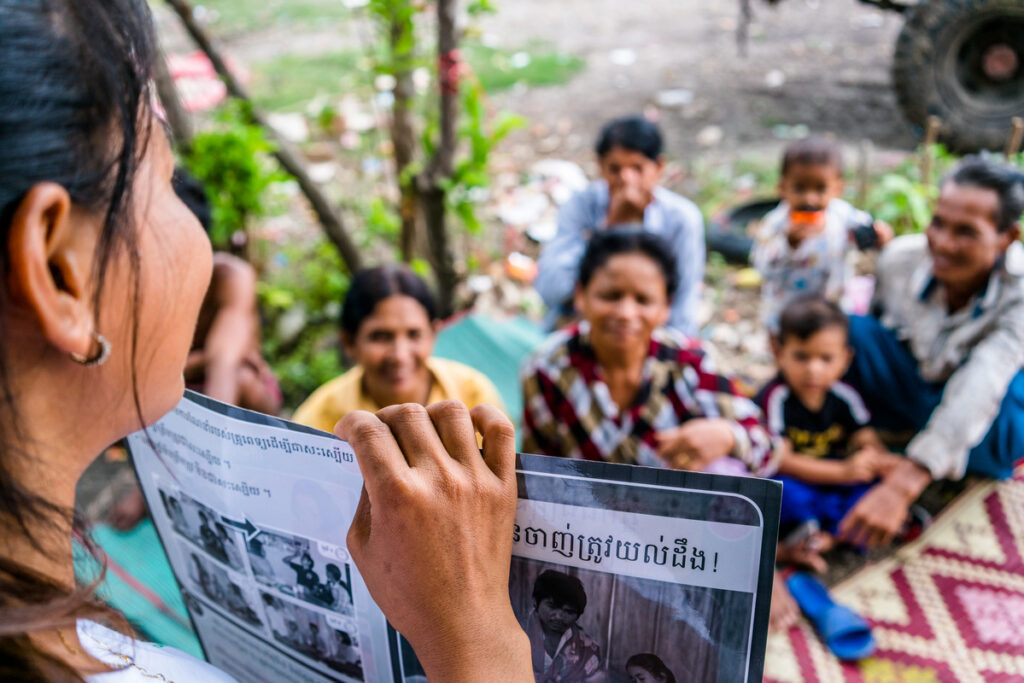
Strengthening the Role of Community Health Workers
The fight against malaria and emerging diseases in the Greater Mekong relies on community health workers. The RAI, a regional initiative supported by L’Initiative, relies on a network of thousands of active agents within communities. These professionals address the shortage of medical staff, especially in rural areas. However, disparities between countries complicate regional coordination. A report recommends better integration, training, and professional recognition to optimize their effectiveness.
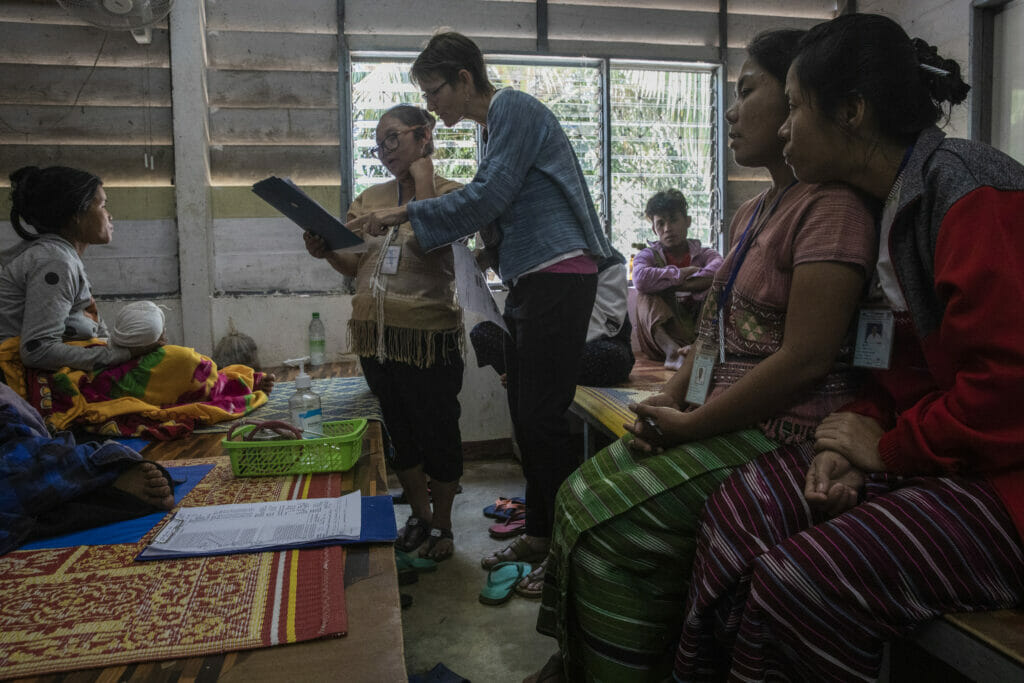
Mae Sot, a Human Challenge at the Thailand-Myanmar Border
Each year, millions of migrants, mainly from Myanmar, arrive in Thailand without documents or access to health services. Women, in particular, lack essential services, especially in reproductive health. Since 2020, the SMRU, supported by L’Initiative, has been running a project to improve their access to care by strengthening the capacities of community health workers. In partnership with Dreamlopments and its M-FUND insurance, this initiative aims to reduce maternal and infant mortality among marginalized populations.
Improving Human Resource Management in the Fight against HIV/AIDS in Vietnam
From 2019 to 2023, the Hanoi University of Public Health (HUPH) collaborated with the Vietnamese administration to test human resource management tools in health facilities in seven provinces. Supported by L’Initiative, this project developed tools based on the WHO’s WISN tool to assess the workload of direct and administrative health staff. Although challenges remain, these tools are now used in various health services. L’Initiative supports a second phase to expand human resource management and planning in public and community health systems, advocating for national and international scaling. The Vietnamese Ministry of Health plans to extend these tools to ten additional provinces for 2024-2026.
